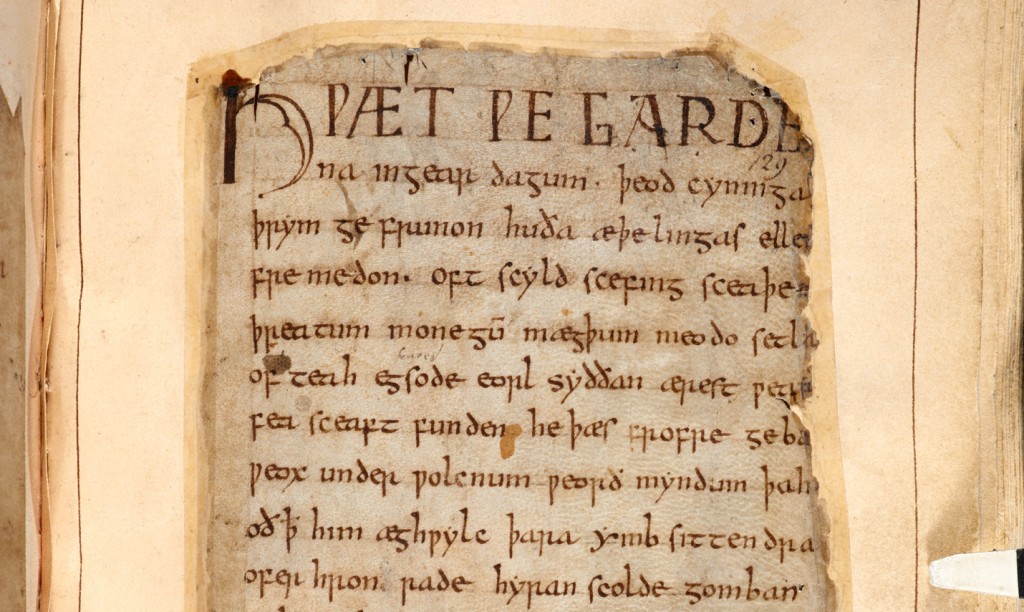Page 48 • (3,506 results in 0.036 seconds)
-
Learning Assessment Techniques - Quick Reference (pdf) view download
-

The Importance of Dead Languages Posted by: hoskinsk / May 6, 2020 Image: Beowulf manuscript May 6, 2020 By Reece Schatz '22English MajorAs a professor in the Department of Languages and Literature, Dr. Collin Brown teaches Norwegian language and Nordic studies at Pacific Lutheran University. However, his love for his work runs so deep, he also started and manages a club called “The Dead Languages Society.”As a member of this club myself, allow me to explain what we do. The Dead Languages
-

,” which focuses on inner-group dialogues about social justice and equity, with emphasis on first-year students. “We learn about the language we use and the impact that language has on other people,” she said. “We focus on who we are and how that effects what we’re saying.” Hylander said talking about these issues is important at PLU because it enriches the learning experiences students have in the classroom. “College is more than just taking class and completing a major,” she said. “It’s about
-
, ELL Teacher, Edmonds-Woodway High School, Edmonds Jennifer Tanaka, Executive Director, OneWorld Now!, Seattle Kathryn Ong, Site Coordinator, CIWA Education Center, Seattle Khawar Ahmed, Director, Sponge School, Seattle Michele Anciaux Aoki, International Education Administrator, Seattle Public Schools, Seattle Paul Aoki, Director, UW Language Learning Center, Seattle Pollyanna Wang, Chinese Teacher, Chief Sealth International High School, Seattle Sun Burford, Chinese Teacher, Bellevue School
-
: Teaching and Learning of Writing This course focuses on the multimodal teaching of writers across developmental stages, emphasizing culturally sustaining practices. This includes developmental and writing processes, genre exploration, the role of identity and community in writing, writing strategies and skills, and formative assessment and feedback. (2) EDUC 423 : Language and Literacy Development for Multilingual Learners This course examines stages of second language acquisition; including, examining
-
China for the host school or district for a period of one to three years. This is your chance to build a Chinese program efficiently and affordably. The College Board also offers programs to place trainees at U.S. host institutions for one school year. Trainees are recent graduates from TCFL (Teaching Chinese as Foreign Language) programs in China who specialize in learning how to teach Chinese language and culture in second language settings. Host schools provide a special professional growth
-
a summer study abroad opportunity for American college and university students to learn languages essential to America’s engagement with the world. The Wang Center Study Away Advisor can support you in the application process; reach out if you’re interested in learning more. Learn about CLS! The Critical Language Scholarship is a prestigious fully funded opportunity to study a language overseas in summer. Humanity in Action Funds four weeks of summer human rights study in Amsterdam, Atlanta
-

that include social justice struggles, present and past, migration, race, gender, sexuality, memory, trauma, and the politics of language. The Hispanic & Latino Studies professors are well-known on campus for their genuine passion for teaching, active role as mentors, and advocacy for social change in the U.S. and abroad. You’ll have opportunities to participate in study away programs in Mexico, Spain, Uruguay, and Puerto Rico, as well as community-engaged learning in Latino/a/x communities right
-
Torhild SkillingstadGraduation Year: 2013 Location: Taipei, Taiwan Project Title: The Status and Teaching of the Taiwanese LanguageBrief Summary of Research Project:The languages of the aboriginal peoples of Taiwan are Austronesian languages, unrelated to Chinese. Since Chinese people started moving across the strait from the 13th century, a dialect of Chinese mixed with local languages developed in Taiwan. This dialect, different enough to be its own language, is spoken by 70% of Taiwan’s
-

an instructional coach for the Toppenish SD, working with teachers to improve their instructional practices. In class, she learned how to plan lessons to address differing language abilities based on student data and various strategies for students learning English. “I wanted to be able to support my staff and students,” Pettijohn says. “The course provided many practical strategies that could be immediately applied to benefit ELL students.” For example, Pettijohn worked with other coaches to
Do you have any feedback for us? If so, feel free to use our Feedback Form.


